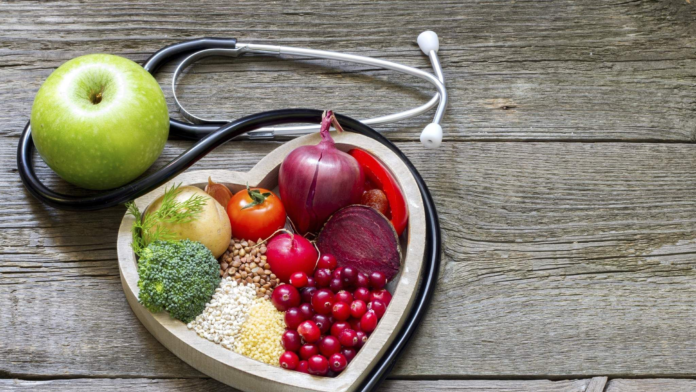Introduction
Your heart is the hardest working muscle in your body—it pumps blood and oxygen nonstop, keeping you alive and energized. But in today’s fast-paced lifestyle, heart problems are becoming increasingly common. The good news is that what you eat plays a major role in keeping your heart strong. By adding certain nutrient-rich foods to your daily meals, you can lower cholesterol, reduce blood pressure, manage weight, and decrease your risk of heart disease.
This article explores the best foods for heart health, explains why they are beneficial, and shows you how to add them to your diet in simple ways.
Why Food Matters for Heart Health
The connection between food and heart health is undeniable. A poor diet high in processed foods, sugar, and unhealthy fats increases the risk of clogged arteries, high cholesterol, and hypertension. On the other hand, nutrient-dense foods packed with fiber, antioxidants, and healthy fats help protect your cardiovascular system.
A heart-healthy diet:
- Improves blood circulation
- Lowers LDL (“bad” cholesterol)
- Raises HDL (“good” cholesterol)
- Helps maintain healthy blood pressure
- Prevents inflammation in the body
Now let’s look at the top foods that strengthen your heart.
The Best Foods for Heart Health
1. Fatty Fish (Salmon, Mackerel, Sardines)
Fatty fish is rich in omega-3 fatty acids, which reduce inflammation and lower the risk of irregular heartbeats. Eating fish twice a week can decrease triglyceride levels and keep your arteries healthy.
How to add it to your diet: Grill salmon with lemon, add tuna to your salad, or enjoy sardines on whole-grain toast.
2. Leafy Green Vegetables (Spinach, Kale, Collard Greens)
Leafy greens are loaded with vitamins, minerals, and antioxidants. They are particularly high in vitamin K, which helps prevent artery calcification, and nitrates, which reduce blood pressure.
How to add it to your diet: Blend spinach into a smoothie, sauté kale with garlic, or make a fresh salad with mixed greens.
3. Whole Grains (Oats, Brown Rice, Quinoa)
Whole grains are packed with fiber, which helps reduce cholesterol levels and improve digestion. Studies show that people who eat more whole grains have a lower risk of heart disease.
How to add it to your diet: Replace white bread with whole-grain bread, start your day with oatmeal, or use quinoa instead of white rice.
4. Berries (Blueberries, Strawberries, Raspberries)
Berries are bursting with antioxidants and anthocyanins, which protect blood vessels and lower blood pressure. They’re also naturally low in calories but high in nutrients.
How to add it to your diet: Add berries to your breakfast cereal, blend them into smoothies, or enjoy them as a snack.
5. Nuts and Seeds (Almonds, Walnuts, Chia Seeds, Flaxseeds)
Nuts and seeds are excellent sources of healthy fats, protein, and fiber. Walnuts are especially good for heart health because they contain plant-based omega-3s.
How to add it to your diet: Snack on a handful of almonds, sprinkle flaxseeds over yogurt, or add chia seeds to overnight oats.
6. Avocados
Avocados are rich in monounsaturated fats, which lower LDL cholesterol while raising HDL cholesterol. They’re also packed with potassium, a key mineral for managing blood pressure.
How to add it to your diet: Spread avocado on whole-grain toast, add slices to salads, or blend into smoothies.
7. Beans and Legumes (Lentils, Chickpeas, Black Beans)
Beans are full of fiber, protein, and resistant starch, all of which help improve cholesterol levels and reduce the risk of heart disease.
How to add it to your diet: Use beans in soups, make hummus from chickpeas, or add lentils to curries.
8. Olive Oil
Extra virgin olive oil is one of the healthiest fats you can consume. It’s packed with antioxidants and monounsaturated fats, which lower inflammation and protect your arteries.
How to add it to your diet: Use it as salad dressing, drizzle it over vegetables, or cook with it instead of butter.
9. Tomatoes
Tomatoes are high in lycopene, an antioxidant linked to lower LDL cholesterol and blood pressure. Regular consumption helps reduce heart disease risk.
How to add it to your diet: Eat them raw in salads, roast them with herbs, or make a fresh tomato sauce.
10. Dark Chocolate (70% or higher)
Dark chocolate in moderation can benefit the heart because it contains flavonoids, which improve circulation and reduce blood pressure.
How to add it to your diet: Enjoy a small square of dark chocolate after dinner or add cocoa powder to your smoothie.
Sample Heart-Healthy Diet Plan
| Meal | Food Example |
|---|---|
| Breakfast | Oatmeal topped with berries and chia seeds |
| Snack | A handful of walnuts and green tea |
| Lunch | Grilled salmon with quinoa and steamed spinach |
| Snack | Sliced avocado on whole-grain toast |
| Dinner | Lentil soup with a side salad drizzled in olive oil |
| Dessert | A small piece of dark chocolate |
This sample plan shows how easy it is to enjoy delicious foods that also protect your heart.
Lifestyle Tips to Boost Heart Health Along with Diet
Food alone isn’t enough—you also need healthy habits to support your heart. Some simple changes include:
- Exercise regularly (at least 30 minutes of walking or jogging daily)
- Limit processed foods, sugar, and excessive salt
- Quit smoking and avoid secondhand smoke
- Manage stress through meditation, yoga, or deep breathing
- Stay hydrated and aim for quality sleep
Conclusion
Your heart deserves the best care, and the food you choose is one of the strongest tools you have. From fatty fish and leafy greens to berries and whole grains, the best foods for heart health are simple, affordable, and delicious. By making small, consistent changes to your diet and lifestyle, you can strengthen your heart, increase your energy, and enjoy a longer, healthier life.
FAQs About the Best Foods for Heart Health
1. How often should I eat heart-healthy foods?
Ideally, heart-healthy foods should be part of your daily meals. Consistency matters more than occasional changes.
2. Can I still eat meat if I want a healthy heart?
Yes, but choose lean meats like chicken or turkey and limit red and processed meats, which can increase heart disease risk.
3. Are eggs good or bad for heart health?
Eggs can be part of a balanced diet. While they contain cholesterol, research shows moderate egg consumption doesn’t harm most people’s heart health.
4. Is coffee good for the heart?
In moderation, coffee may benefit heart health due to antioxidants. However, avoid adding too much sugar or cream.
5. What’s more important: diet or exercise for heart health?
Both are equally important. A healthy diet fuels your body, while exercise strengthens your heart muscle. Together, they provide the best protection.

